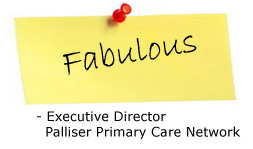
![]() CONTACT US FOR THE NEXT COURSE DATES
CONTACT US FOR THE NEXT COURSE DATES
In the meantime, please check out the upcoming How To Investigate: The Fundamentals of Effective Fact Finding course
The course includes a lot of the material that we cover in the healthcare course.
Lots of folks from the healthcare world have attended the Fundamentals course. They found it really useful, as you can see from the testimonials page.
The course is LSSK, LSBC, LSUC HRPA SAHRP, HRIA, BCHRMA accredited.
Overview
We have created a hands-on, tailor-made, one-day course that focuses on how to conduct investigations in a health care environment that can withstand scrutiny. The course includes in-depth segments on:
- Interviewing
- Dealing with frivolous, malicious and vexatious complaints
- Identifying and dealing with potential systemic issues
- Report writing
Course Content:
Investigative Principles
Using a case study adapted from a real-life hospital case, we discuss the 8 principles that underpin any kind of fact-finding.
Case Assessment and Systemic Issues
A brief outline on how to conduct an initial assessment of a complaint or issue to determine what to do next. Many health care related investigations involve or reveal underlying root cause issues. By tackling these issues, you may nip many complaints in the bud.
Investigation Planning
How to structure and prepare a plan that will act as a road map throughout the investigation. Using a case study, we will cover:
- how to avoid “issue creep”,
- develop an effective investigation strategy,
- pinpoint sources of evidence,
- anticipate potential roadblocks,
- use resources efficiently
- set realistic goals and timelines with a firm completion date.
Participants will be provided with an 11-segment investigation planning template.
Group Exercise 1
We have created a bespoke scenario that includes challenges and opportunities often found in health care related investigations. Participants will get together in small groups to discuss and dissect the scenario. Groups will prepare and present an investigation plan.
Investigative Interviewing
How to identify, prioritize and interview witnesses. This presentation covers:
- underlying principles,
- how to determine who to interview and in what order,
- how to prepare for an interview,
- put witnesses at ease,
- deal with those who are less than cooperative,
- develop comprehensive questions and structure interviews to get maximum information.
We will also discuss common problems, the most common errors made by interviewers, and how to record your interview.
The presentation includes video of good – and not so good – investigative interviews.
Group Exercise 2
Groups will prepare and present interview questions for characters in the scenario.
Frivolous, Vexatious or Malicious complaints
How do you determine if a complaint is frivolous, vexatious or not made in good faith? This session will discuss several approaches, as well as cover how to deal with an investigators worst nightmare – the querulant, otherwise known as the complainant who will never give up, regardless of how reasonable any proposed resolution is.
Whistleblowers
Whistleblowers can be a valuable resource, particularly in the health care field. They can also bring challenges, including issues of confidentiality and credibility. How you deal with them will impact on the integrity of your investigation.
Documentary, Digital and Physical Evidence
Documents are the life-blood of many health care related investigations. We will cover how to obtain, organize and review documentation. Digital evidence is becoming increasingly important in all types of investigations and particularly so in workplace investigations. CCTV, cell phone video, hard drives, etc – all may be the source of crucial evidence. Retrieving it can be a complex and expensive process. This short segment gives an overview on how to identify, obtain and review digital and physical evidence.
Assessing Evidence
A brief segment on determining if you have sufficient, relevant and reliable evidence to reach a conclusion about what happened. We discuss how to assess evidence, including how to deal with any that may not necessarily support your ultimate findings.
Report Writing
How to write clear, cogent and comprehensive reports. This session will include how to set out a narrative of what has happened, so that all the relevant facts are dealt with in an easily understandable manner. It also includes a framework for presenting evidence in a manner that ensures that readers can understand the rationale underpinning your conclusions. Previous participants have included
- Emergency Department Supervisors
- Executive Directors
- EMS personnel
- Patient Relations Consultants
- Unit Managers
- Litigation Assistants
- Regulatory investigators
- Corrections Health personnel
- Patient Safety Specialists
- Health and Safety Specialists
- Labour Relations Specialists
- Practitioner & Staff Affairs staff
- Human Resources Specialists
- Protective Services staff
- Clinical Quality Consultants
- Compliance Managers
- Patient Rights Advocates
The course will be delivered by Gareth Jones. Gareth has 30 years of investigative experience in the public and private sector. He has provided investigative training to numerous fact-finding agencies in Canada and internationally, including to UN organizations. Gareth’s full bio is here.
We would be delighted to answer any questions you might have. Call us at 416-704-3517 – or contact us at bjaworski@investigationstraining.com
PRICE:
Discounts for groups of 5 or more.